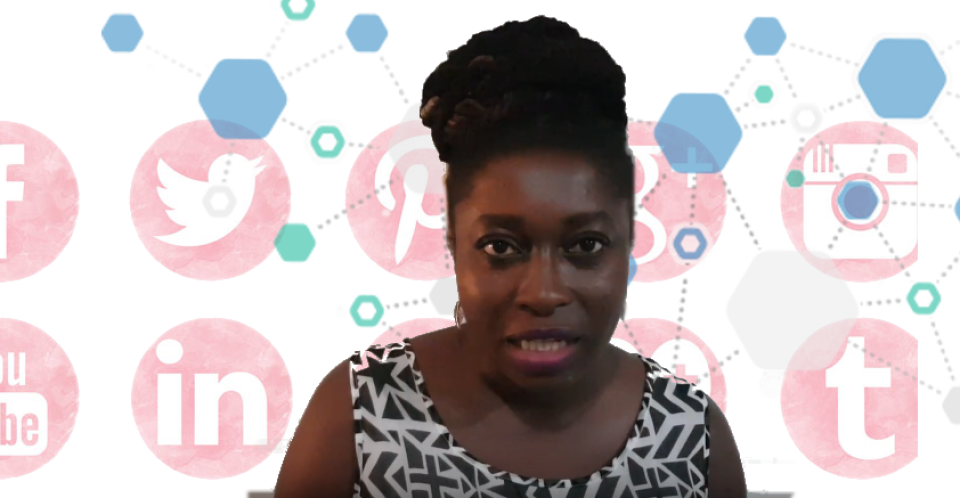
Note: this is not an exact transcript of this video - but the text I wrote before recording the video
Hi everyone, my name is Nana Darkoa Sekyiamah, I am a Ghanaian feminist and social media enthusiast. I’m here to share my observations of how activists are using social media to build movements in West Africa. I will focus primarily on how feminist activists use the power of social media to build relationships, to network and to amplify causes. I will speak based on my own personal experiences, and my general observations.
I will focus primarily on how feminist activists use the power of social media to build relationships, to network and to amplify causes.
When it comes to utilising social media for activism, I prefer to head to Twitter. This is because the platform enables me to connect with people with whom I have similar interests - I have especially found Twitter useful for building community with African feminists. I remember several years ago, a number of African feminists and myself were constantly tagging each other in tweets because we wanted to engage ideas and thoughts with other African feminists. These were in the days of only 140 characters so you can imagine how challenging that could be to tag a growing list of African feminists with whom you felt some sort of affiliation.
Then Zawadi Nyongo, a Kenyan feminist, suggested we come up with a hashtag. After some friendly (and occasionally heated) debate amongst a small group of African Feminists we settled on #Afrifem. And so you can imagine that it gives me a lot of joy when today I see feminists from all over the continent using the hashtag to connect with each other, and to indicate their own political position as an African feminist. And for me that’s a great example of how social media can be used for building movements. These digital tools enable you to connect virtually with people based on shared interests, and that provides the opportunity to build a base with whom you can work on a shared cause.
After some friendly (and occasionally heated) debate amongst a small group of African Feminists we settled on #Afrifem. And so you can imagine that it gives me a lot of joy when today I see feminists from all over the continent using the hashtag to connect with each other, and to indicate their own political position as an African feminist.
The fact that social media is also nominally free to use - and I say nominally because we have to be aware that we provide our data to corporate bodies that own the social media tools, and that data is valuable and is sold to advertisers - makes it an affordable tool for activists who may not have huge resources. The fact that one can easily share messages via social media makes it easier to activate a mass base in support of an action.
We have to be aware that we provide our data to corporate bodies that own the social media tools, and that data is valuable and is sold to advertisers
I’m thinking of my own country Ghana and the #DumsorMustGo campaign that was led by the actress Yvonne Nelson in 2015. When she started her campaign for the government to address the issue of severe power outages that was crippling the country’s economy and affecting Ghanaians in their everyday lives the politicians did not take her seriously. They mocked her. They thought, ‘she is only a celebrity’. But she had millions of followers across her various social media platforms and her campaign went viral. Ghana is not a country where people end up on the streets in demonstrations for non partisan causes, but for Nelson’s campaign thousands of people (including myself) poured out on the streets in a peaceful and vibrant march calling for an end to power outages. I have no doubt that the power of social media, as well as her own celebrity status were key factors for the successful mass mobilisation that Yvonne Nelson succeeded in garnering.
I have also seen feminists use social media to keep an issue in the public eye - especially when mass media have moved on to other ‘sexier’ topics. Oby Ezekwesili from Nigeria is a great example of this. Years after the world seems to have moved on from the #BringBackOurGirls campaign which started with the kidnaping of school girls from Chibok, Ezekwesili has continued to keep this issue in the limelight highlighting how ALL kidnapped girls need to be returned to their families.
Years after the world seems to have moved on from the #BringBackOurGirls campaign which started with the kidnaping of school girls from Chibok, Ezekwesili has continued to keep this issue in the limelight highlighting how ALL kidnapped girls need to be returned to their families.
It is also important to highlight that for many activists the work they do on social media is complemented by their activism in physical spaces, and that social media is just one of many tools that activists use to build relationships, and to connect with one another.
P.S: I thank the Gender Based Violence Prevention Network, coordinated by Raising Voices for originally asking me to share my thoughts on how social media is being used for movement building in West Africa. Gratitude to my friend Victoria Okoye who also filmed this video with my phone.
Social media is just one of many tools that activists use to build relationships, and to connect with one another.
- 3142 views






Add new comment